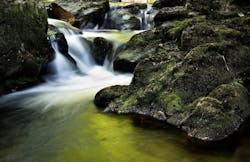Court Vacates Trump-Era Navigable Waters Protection Rule
The U.S. District Court for the District of Arizona relinquished the 2020 Navigable Waters Protection Rule (NWPR) that redefined “waters of the United States” for purposes of Clean Water Act jurisdiction.
This occurred on Aug. 30, reinstating the definition in effect prior to 2015, reported The National Law Review.
Under the prior definition under the Trump-era administration, many ephemeral streams and isolated wetlands that were not subject to federal jurisdiction under the NWPR will again be subject to case-by-case determinations of their status.
“The seriousness of the Agencies’ errors in enacting the NWPR, the likelihood that the Agencies will alter the NWPR’s definition of ‘waters of the United States,’ and the possibility of serious environmental harm if the NWPR remains in place upon remand, all weigh in favor of remand with vacatur,” said Judge Rosemary Márquez, an Obama appointee, who vacated the Trump-era NWPR, reported The Hill.
Pasqua Yaqui Tribe v. EPA, CV-20-00266-TUC-RM is one of several cases that challenges the NWPR.
The current administration expressed concerns about the NWPR, identifying hundreds of projects that would have required CWA permitting under previous versions of the rule but are not subject to federal jurisdiction under the NWPR. Many of these projects are notably in the West, reported The National Law Review.
According to the court, it did not rule on plaintiffs’ challenge to the 2019 regulation that rescinded the 2015 CWA and reinstated the pre-2015 definition of waters of the U.S., reported The National Law Review.
While the pre-2015 rule is in place, the status of the NWPR nationwide is unclear. According to The National Law Review, different parts of the nation may be left with different rules while the U.S. Army Corps of Engineers and the U.S. EPA work on a new definition of waters of the U.S.
According to EPA, for now, the term waters of the U.S. means:
- All waters which are currently used, or were used in the past, or may be susceptible to use in interstate or foreign commerce, including all waters which are subject to the ebb and flow of the tide;
- All interstate waters including interstate wetlands;
- All other waters such as intrastate lakes, rivers, streams, mudflats, sandflats, wetlands, sloughs, prairie potholes, wet meadows, playa lakes, or natural ponds, the use, degradation or destruction of which could affect interstate or foreign commerce including any such waters:
- All impoundments of waters otherwise defined as waters of the U.S. under this definition;
- Tributaries of waters aforementioned;
- The territorial sea; and
- Wetlands adjacent to waters aforementioned.
